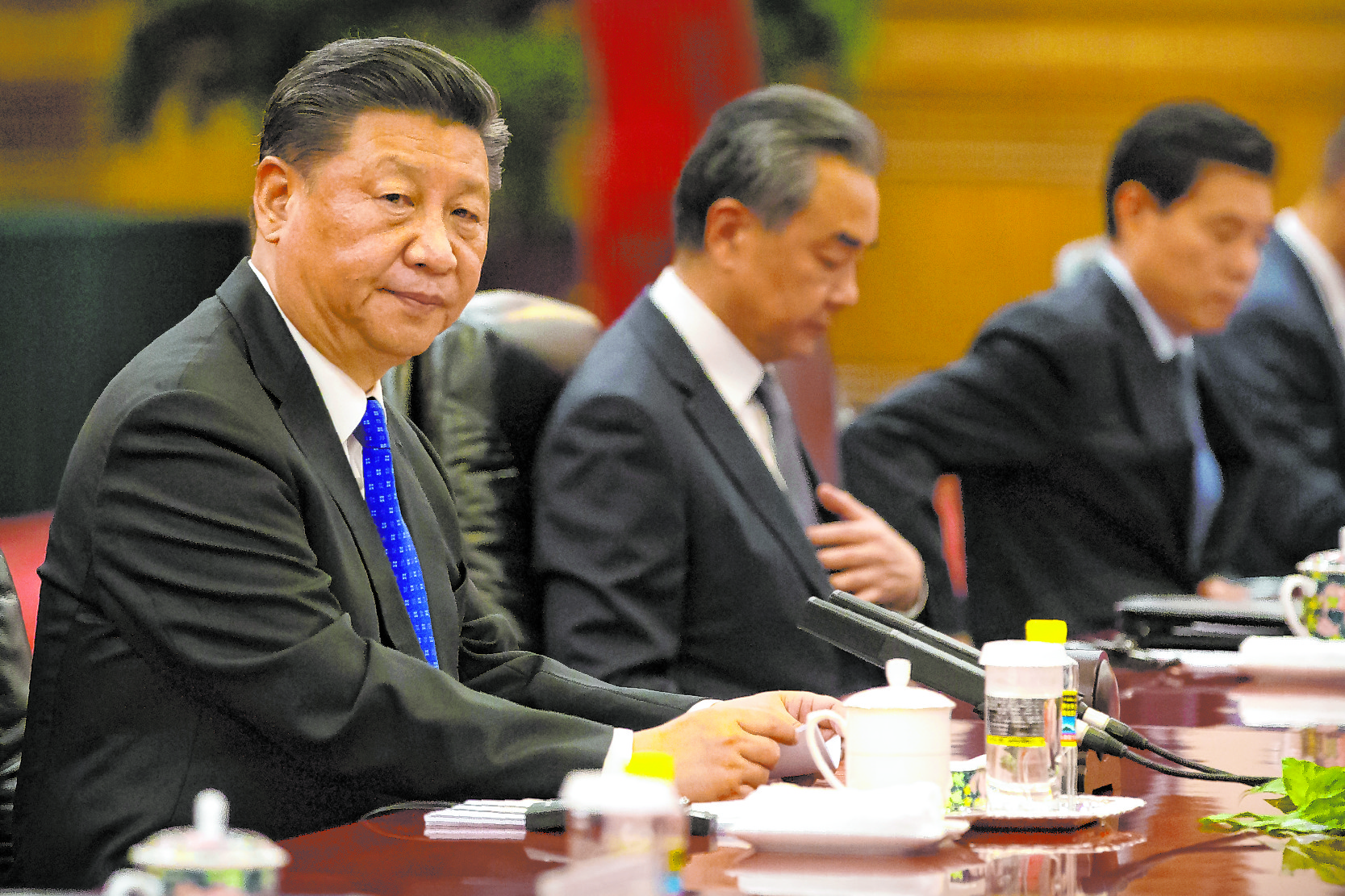JONAH GOLDBERG: Cold War approach won’t work with China
It’s easy to miss, given how polarized our politics are, but there is a growing consensus around a very big issue: China.
Foreign policy experts, military leaders and politicians across the ideological spectrum all tend to agree that a new era of confrontation with China has begun. Many on the right have been calling for a Cold War approach to China for a while now. But the idea, if not always the term “Cold War,” is widely held among Democrats, too. President-elect Joe Biden, once dismissive about the Chinese threat, now concedes that the country poses a “special challenge” to the United States.
It’s worth dispelling a common misunderstanding. Just because there’s a broad consensus around an issue doesn’t mean people won’t fight about it.
Indeed, some of the greatest political fights are driven by broad agreement on a problem. The best illustration of this point was the Cold War itself.
Contrary to rhetoric from rabid anti-communists from 1945 to 1989, most Democrats were not pro-Soviet. Some, such as Presidents Truman, Kennedy and Johnson, were downright hawkish on the USSR. Some Democrats were “soft” on communism. Henry Wallace, FDR’s second vice president, was so soft you could say he was supine. But for the most part, there was broad agreement that the Soviet Union posed a serious threat to the United States and the West.
The arguments among policymakers were over what to do about it, and they were intense. Looking back at the tumult over the Vietnam War, a decidedly Cold War conflict, or the debates over McCarthyism — not to mention U.S. nuclear policy or aid to the Nicaraguan Contras under Ronald Reagan — you could be forgiven for thinking there was no consensus at all.
Another complicating factor: Conceptually, communism, Marxism and socialism, as well as related arguments about anti-Americanism and anti-imperialism, had significant purchase among many American and Western intellectuals, actors, academics and writers. Some were pro-Soviet — some were even spies! — but most of them just worked from a set of assumptions based on the childish notion that anyone who said America was wrong had to be at least a little right. This intellectual divide made the political consensus seem more fragile than it was.
That’s one reason I’m skeptical of the idea that our confrontation with China will or should resemble the Cold War. The Soviet Union was a romantic fixation for many American leftists, most intensely in the 1920s and 1930s, but its half-life endured until the fall of the Soviet Union. In 1919, writer Lincoln Steffens visited the Soviet Union and declared, “I have seen the future; and it works.” Almost seven decades later, a fringe socialist mayor from Vermont named Bernie Sanders visited Moscow on his honeymoon and returned to say something similar.
While China held considerable appeals to some intellectuals in the 1990s — the New York Times’ Thomas Friedman wrote fawningly about the benefits of Chinese authoritarianism — that’s pretty much over now. The Soviets could convert Americans into spies because those Americans were true believers. China has spies in America. (See the recent controversy over a female operative who reportedly tried to compromise various American politicians, including Rep. Eric Swalwell, D-Calif.) But the currency of Chinese espionage appears to be, well, currency, as in money — with a little sex and blackmail thrown in.
In other words, China is definitely an adversary, but it isn’t really an ideological competitor the way the Soviet Union was.
But that doesn’t mean confronting China will necessarily be easier, just different.
For starters, the Chinese commitment to Marxism-Leninism is nonexistent save in one regard: the supremacy of the Communist Party. I shouldn’t have to note that a party chock-a-block with millionaires and billionaires isn’t actually communist. Also, China’s system of ethnic apartheid and persecution doesn’t fit the identity politics prism that sees bigotry as a uniquely white problem.
China’s ruling ideology is much better understood as nationalistic, with bits of oligarchy, aristocracy, racism and imperialism thrown in. It is more comparable to early 20th century would-be hegemons such as Germany and Japan. This creates a whole set of challenges not easily fitted to our 20th century Cold War struggle with an evil empire that did us the favor of embracing economic doctrines that kept it immiserated and crippled technological adaptation and innovation. The Communist Party’s strength is that it can actually claim to have delivered prosperity (albeit at an inhuman cost).
America needs to contain China’s ambition to be a superpower, but that will be more difficult if we act like generals fighting the last Cold War.
Jonah Goldberg is editor-in-chief of The Dispatch and the host of The Remnant podcast. His Twitter handle is @JonahDispatch.

















